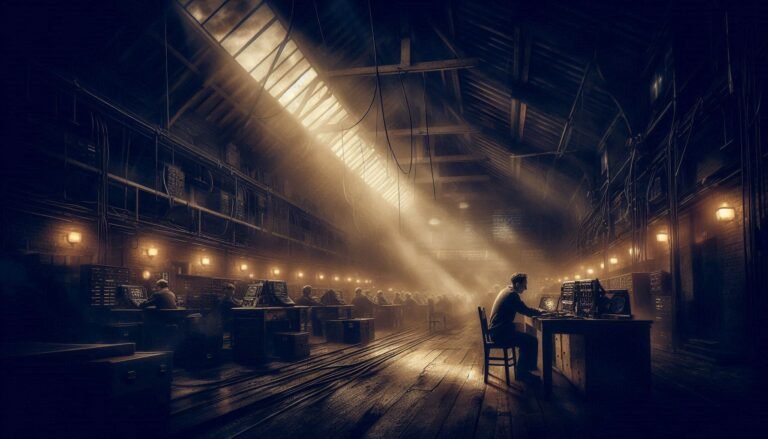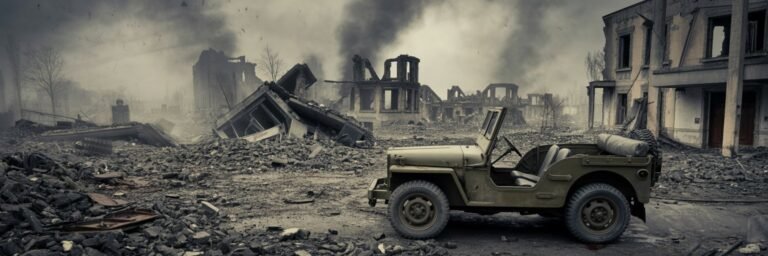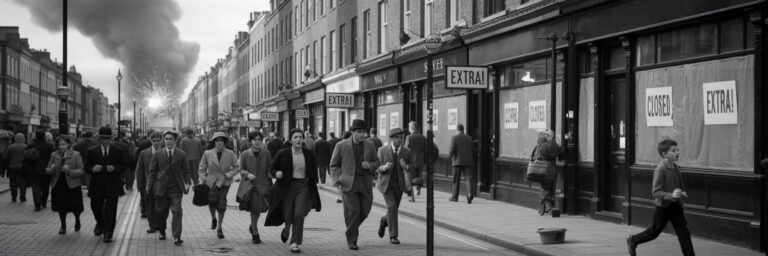INTRODUCTION
World War II, sometimes called the ‘War that Changed the World,’ is a behemoth in global history. Spanning six years from 1939 to 1945, it drew in more than 30 countries and impacted nearly every corner of the globe, marked by significant loss of life, shifts in political power, and marked sociocultural change. The repercussions of this war ring loud to this day — nearly eight decades post its conclusion — as it continues to influence global politics, socio-economic structures, human collective memory, and cultural narratives. The question we aim to answer in this exploration is – why does World War II still matter today?
HISTORICAL BACKGROUND
The triggers of World War II are multifold and complex, with the prevailing view being that unresolved conflicts from World War I and the economic international crisis of the 1930s, played a significant part. World War I, or The Great War, resulted in significant political changes, redistributing influence in Europe and leaving nations eg bruised Germany, with issues yet to be fully addressed. The Treaty of Versailles, signed in 1919, was particularly punitive towards Germany, fostering resentment and radical perspectives that culminated in the rise of Adolf Hitler and his Nazi Party.
In parallel, economic factors precipitated by the Great Depression eroded faith in democratic systems. Countries like Italy and Germany turned to totalitarian regimes perceived as being better equipped to handle crises. Coupled with a lack of effective intervention by the League of Nations, and a growing sense of nationalism, the stage was set for a conflict of epic proportions.
THEORIES AND INTERPRETATIONS
Many interpret World War II through various lenses, from geopolitics to economics, socio-cultural factors, and human psychology. Renowned historian A.J.P. Taylor controversially suggested that the war was an inadvertent product of factors like diplomatic blunders and individual personalities rather than planned aggression by Axis powers. On the other hand, Gerhard Weinberg posits that Hitler had a detailed plan to achieve world domination.
Others, like John Maynard Keynes, note the economic underpinnings of the war, alleging the unfair levies imposed on Germany post World War I bred resentment that contributed to the outbreak of World War II. The role of ideology and white supremacy propagated by the Nazi party are viewed by historians like Richard J. Evans as crucial in rallying complacency towards war.
MYSTERIES AND CONTROVERSIES
World War II isn’t devoid of mysteries and controversies. One resonating mystery is the whereabouts of Nazi leader Adolf Hitler before his alleged suicide in April 1945, sparking theories from escape to South America to a quiet life in a remote part of Germany. Also, the question of why the Allies didn’t bomb Auschwitz to halt the Holocaust still inspires debate. Would it have saved lives or caused more harm?
The decision to deploy the atomic bomb on Hiroshima and Nagasaki by the US remains a controversy. While some argue it hastened the war’s end, others argue the horrific human cost and long-term consequences were avoidable.
SYMBOLISM AND CULTURAL SIGNIFICANCE
World War II has been deeply ingrained in global cultural narratives. The Holocaust symbolizes one of history’s worst crimes against humanity, a stark reminder against apathy towards radical ideologies. “Never Again” is a mantra iterated continually to remind the world of the depths to which humanity can sink.
On the other hand, the bravery and resilience shown during the Blitz in London became emblematic of a nation’s refusal to yield to domination, inspiring many patriotism-themed narratives. Pearl Harbor plays a similar role in American collective memory.
The mushroom cloud over Hiroshima and Nagasaki morphed into a symbol of the dawn of the Atomic Age and all its associated anxieties and advancements.
MODERN INVESTIGATIONS
World War II continues to spark modern-day investigations. Historians and archaeologists are still uncovering concealed bunkers, exploring sunken submarines and digging up mass graves, piecing together the stories of those impacted by the war.
Justice for war crimes committed is still being sought, with remaining Nazi criminals being tried as recently as 2021. Meanwhile, the Mitrokhin Archive’s disclosure has reignited investigation into the scope and extent of Soviet espionage in the period.
LEGACY AND CONCLUSION
World War II reshaped the world, birthing superpowers in the US and the Soviet Union, and heralding a shift in power from Europe to these new geopolitical centers. The United Nations, established in 1945, was a product of the resolve to avoid such catastrophic wars in the future.
In a socio-cultural context, World War II spawned an entire genre of literature, cinema, and art, from Anne Frank’s Diary to Saving Private Ryan, commemorating the war and those affected by it. The war established the US as a cultural leader, influencing global media, fashion, and youth culture trends.
World War II’s lessons continue to echo in today’s constructs – whether through the European Union’s coordination, Israel’s existence, or nuclear non-proliferation talks. As we reflect on its impact, it remains clear that understanding WWII is pivotal in understanding the world as we know it today, making its study not just relevant, but essential. The War that Changed the World continues to reverberate in our collective memory, its lessons persistently relevant, reminding us that history, often, is not just in the past – it lives, breathes and shapes our present.






